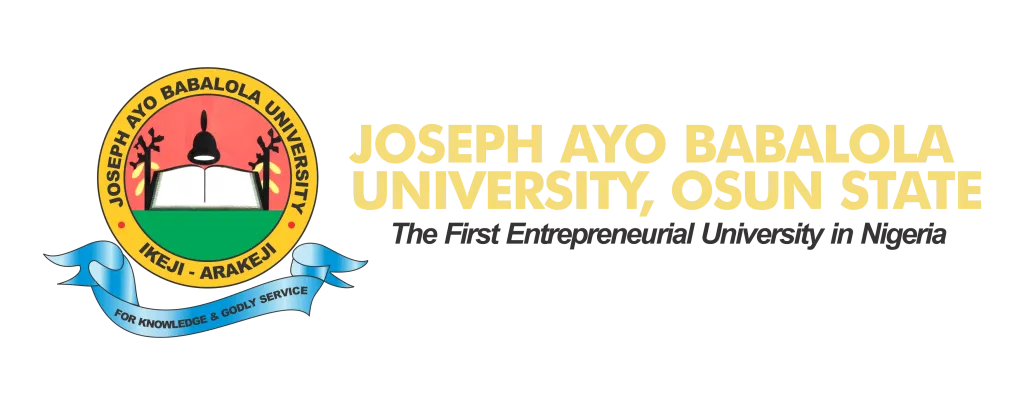Joseph Ayo Babalola University (JABU) Cut Off Mark 2025/2026. JABU Cut Off Mark is a key thing every student should know before applying to this private university.
Knowing the cut off mark will make the difference between getting your desired course or missing out. Joseph Ayo Babalola University (JABU) is known for academic excellence, and like most Nigerian universities, cutoff marks are one of the criteria for admission.
For the 2025/2026 academic session, the JAMB cutoff mark for universities in Nigeria is 120. But the JABU cutoff mark is 180. So only candidates who have shown a level of academic proficiency will have the opportunity to pursue their academic dreams in the institution.
While the general cutoff mark is 180, it is important to note that getting admitted into Joseph Ayo Babalola University is not just about meeting this score. Other factors, such as departmental cutoff marks and the competitiveness of the course, also come into play.
UTME is very important, as it directly affects your chances of getting into the university. Students who score above the JABU cutoff mark have higher chances of being considered for admission.
But scoring 180 doesn’t guarantee automatic admission, as the university will look into the performance of all applicants and use a competitive selection process. So scoring higher will boost your chances, especially in more competitive departments.
Joseph Ayo Babalola University (JABU) Cut Off Mark 2025/2026

JABU has set 180 as its 2025/2026 cutoff mark, which is above the 120 cutoff mark set by JAMB. This cut-off mark is for all courses in the university and is a general entry requirement.
However, please note that some departments may have higher cut-off marks due to the number of candidates and the nature of the courses.
The JABU cut-off mark is the baseline score for admission. It means the minimum score that qualifies you to sit for the post-UTME screening. Meeting this requirement does not guarantee admission.
Your UTME score and your performance in the post-UTME screening and other relevant criteria will determine your admission status.
Why Higher Scores Matter
Although the JABU cut-off mark is 180, students are advised to shoot for scores above this. The higher your score, the higher your chances of being admitted.
Admissions in JABU, like in most other institutions, are competitive. 180 qualifies you to apply for admission, but students with higher scores will be given priority when departments are making their selection.
In cases where the number of candidates is more than the available space for a course, the university will give preference to those with higher scores.
This is more so for highly competitive courses like law, engineering, or medical sciences, where competition is usually high. For such courses, a score of 200 or above may be necessary to increase your chances of being admitted.
JABU Departmental Cut-Off Marks
The JABU cut-off mark is 180 for all courses, but some departments have their own cut-off marks depending on the number of applicants and the level of competition.
Departments that have more applicants, like the Faculty of Engineering or the Faculty of Law, may increase their cut-off marks above the general JABU cut-off mark to pick the best candidates.
Departmental cut-off marks are determined every year based on the overall performance of the applicants. So if many applicants score above 180, the departmental cut-off mark may be higher for that year. If the overall performance is low, the cut-off mark may be closer to the general JABU cut-off mark.
JABU Post-UTME
Meeting JABU cut-off mark is just the first step. After that, candidates will have to sit for JABU Post-UTME screening. This screening is to further assess candidates’ readiness for university education and eligibility for admission into the courses they applied for.
Post-UTME screening usually takes place few weeks after UTME results are released. During the screening, candidates will be assessed based on their JAMB scores, SSCE results and sometimes additional written or oral examination.
Note that JABU places more emphasis on overall performance of candidates, not just their UTME scores. So excelling in Post-UTME screening is as important as meeting JABU cut-off mark.
JABU Admission Screening Procedure
JABU admission screening is in two phases. In the first phase, candidates who meet the JABU cut-off mark will present themselves for pre-screening.
During this stage, the university will verify candidates’ academic records, including their UTME scores and SSCE results.
The second phase is after the release of the admissions list. Candidates who have been offered admission will then go through more detailed screening, where they will present original copies of their academic qualifications, birth certificates, and letters of good conduct from their community leaders or civil servants. Meeting all these requirements is necessary to confirm your admission to JABU.
Other Requirements
While the JABU cutoff mark is important, it’s not the only requirement for admission. The university also considers your SSCE result, which must be 5 credits in relevant subjects, including English and math.
You must also provide proof of good conduct, evidence of your local government of origin, and other academic credentials.
Also note that students awaiting their SSCE result may not be considered for admission until their result is out. So make sure all your academic qualifications are in order before applying to Joseph Ayo Babalola University (JABU).
Conclusion
In summary, the JABU cutoff mark for 2025/2026 is 180, as approved by the institution. Meeting this minimum score qualifies you to participate in the admission process, but a higher score increases your chances of being admitted, especially for competitive courses.
The admission process of the university is not just the cut-off mark but also the post-UTME screening, academic performance, and other factors. So prospective students should aim to score above the JABU cutoff mark and meet all other admission requirements to increase their chances of getting admitted to this university.
